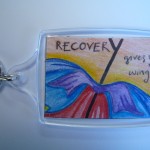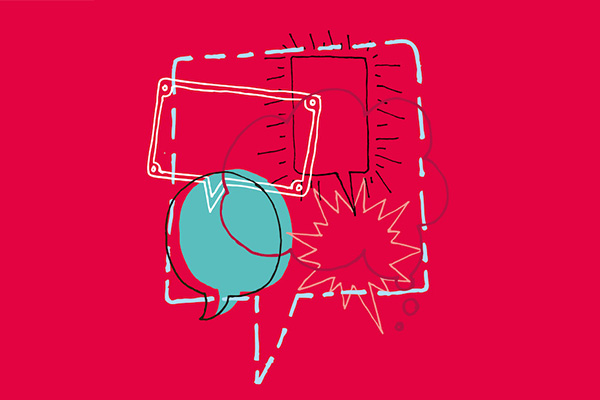Systems often work to protect their integrity, maintaining the relationships and consequences upon which they are constructed. This can lead to deeply entrenched problems where relationships are weak or adversarial, where different components of the system are working to different objectives, and where a significant number of essential components are hidden, unknown and missing.
In the case of problem drug and alcohol use and recovery, we’ve illustrated why this can mean that recovery can be so difficult to initiate and sustain when considered as a system. But recovery is undoubtedly one of those complex ‘systems' and we’re all tangled up in it. Thing is, we rarely recognise this unless we have been personally affected by addiction or the resulting problems.
From a systems perspective recovery needs everyone to work towards a shared goal. This doesn’t have to mean that there has to be absolute agreement about what recovery is, or that there needs to be a single definition that all must agree with, or a single journey that everyone must travel. No; it can be flexible to allow for the personal recovery process, for appropriate goals, for a localised approach dependent on local resources and assets.
It can seem easy when thinking systems, to forget about the people involved in them. Individuals can become impersonal groups. I’m not just thinking about the people on their recovery journey here, but also the keyworkers, the nurses, the service managers, the commissioners, the receptionists, the community group leader, the off licence owner, the librarian, Mr & Mrs J. Bloggs, the sister, and mum. At the end of the day, it’s all of these people who make a recovery system work. And if they don’t buy into, understand or work towards recovery for all, then more must be done to engage, educate and train them. With this in mind last week was a little up and down for me. It’s great to see the Skills Consortium focussing their next national conference on ‘building recovery in the workforce’ but it was awful to see that funding for the Drug Education Forum has been cut. More is needed, not less!

We’re beginning to see the impact of individuals working together in open and generous ways in our Recovery Capital project. They’re taking the time to develop a shared vision for recovery for the city and are modest in their understanding that they need to work together to achieve it. It makes such a difference. Working closely with the CRi implementation team for the new recovery service for Peterborough (starting in January 2012), with the Safer Peterborough Partnership, with local councillors and community organisations and importantly with local people in recovery, we can already see tangible results in the community.
It doesn’t have to be difficult, drawn out or resource heavy. Over the last 3 weeks we have been running some informal activities in the community for anyone in recovery. We have invited someone from the forthcoming service to come along and join in with the painting, make the tea and have a chat.

By week 3 the group have decided to give themselves a name – Free Recovery for Everyone, Everywhere (FREE) - and have prepared a proposal to run a series of activities independently over the Christmas and New Year period for people in recovery in the city. The CRi team have kindly agreed to support the activities when and where the group ask for it. The group are making keyrings to advertise the 24/7 freephone recovery support number that few people seem to know about and will be distributing them across the city. Over Christmas they hope to design a mural for the new recovery service.
I once heard Clive Martin, Director of Clinks say that ‘compassion is a methodology’ when talking about rehabilitation programmes in prison. I think it would benefit the development of recovery systems across the country if we start to understand individual attitudes and behaviours as interventions – thinking specifically about practitioners, commissioners and the wider workforce here - and take the time and provide the space for better engagement, learning, and understanding. Build the relationships, strengthen the links, and make the connections. We’re rightly focussing on how to do this at a grassroot level among people in recovery. More must now be done across the workforce and into the community with community recovery champions at the helm.
Any and all interventions on parts of a system will have consequences on other parts of the system, as well as on the system as a whole. These consequences cannot always be anticipated or planned for. If the intervention itself is generosity, openness and a commitment to recovery, then my hope is that we can be more brave and more daring in everything else we try as we will have created the environment in which the unintended consequences are wholly serendipitous and beneficial for all.
Related articles
-
Blog: The language of Pain
Steve Bodycomb
How language and art can be used to help diagnosis and treatment of medical conditions

Join the discussion
Comments
Please login to post a comment or reply
Don't have an account? Click here to register.
Thank you for your comments.
The idea of risk is an interesting one. The first questions that always pops into my mind is 'risk for who?' And then you get into the sticky world of what risk is acceptable risk.
What I like about systems approaches to most complex challenges is that it does allow for some risk idenitification and, in some ways, risk management. We just need to build the right systems first. And as Russell points to, getting to what might be the 'right' system for recovery is going to be tricky at a time of performance management, payment by results, targets and fiscal constraint. Risk then becomes about numbers not lives.
I am very taken with your article. Writing as J Bloggs I am slightly unnerved by the absence of the word 'risk'.
All life involves risk, and we deny this at our peril. Is life now so risk-averse that we should all be CRB checked before we can be allowed to pick our noses?
A number of years ago there was a 'Self Improvement' book called IIRC 'Feel The Fear And Do It Anyway', or very similar. Even assisting a distressed child is fraught with risk, so I am given to understand, but if we do nothing the child remains in distress.
Speaking as a member of society, I say that the populace needs to be educated in what constitute the precursors to addiction.
I love what's going on in Petersburg!
Prof Mike Hough from the Institute of Criminal Policy Research undertook many of the early evaluations of drug treatment interventions in the criminal justice system. At every presentation of the findings, he would take care to remind everyone that at the heart of the system are a series of human interactions.
We will only be able to move towards a real recovery system if workers, volunteers and service users all feel part of the same approach – that's very easy to say, very tricky to achieve especially when organisations have to demonstrate their performance via targets.
The Peterborough project is providing us all with some much-needed inspiration and optimism…